An Ocean of Optimism
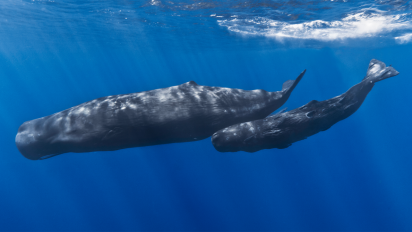
The start of spring brings a sense of renewed optimism to the world. The sun is shining, flowers and new plants give color to the landscape, and baby animals pop up all around. It’s a cheery time of year and the perfect time to look at the many marine conservation successes. There are many ways to find hope in marine conservation, one of which is through Ocean Optimism.
Read moreGrief – An Ebb and Flow
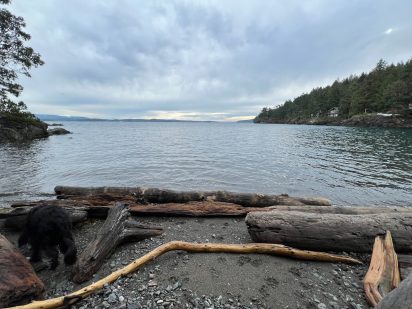
It was mid-January and there was a crisp, damp breeze kicking off the green waters of the Puget Sound. I watched as a few of my friends ran straight into the freezing water, gasping at the cold shock as they submerged themselves. I took a deep breath and walked in slowly, feeling the water creep up like an icy hand until it reached my waist.
Read moreA Timeline of Eelgrass Restoration
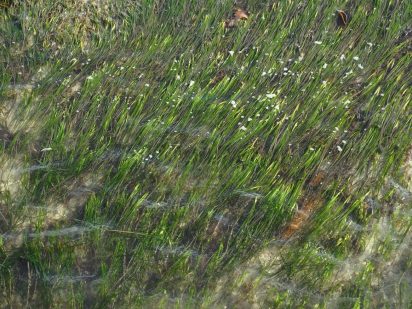
The dynamic coastline of Puget Sound is known for scenic coastal views and abundant wildlife with an impressive diversity of seabirds, fish, and invertebrates. A foundational component of Puget Sound ecosystems is the marine perennial plant commonly known as eelgrass. Eelgrass forms highly productive habitats that nurse much of the wildlife appreciated around the greater Puget Sound. Eelgrass is sensitive to environmental change and as environmental changes become an ever-increasing concern, the need to maintain eelgrass beds increases as well.
Read moreEnvironmental Justice: Increasingly Making its Way into Washington State’s Climate Legislation
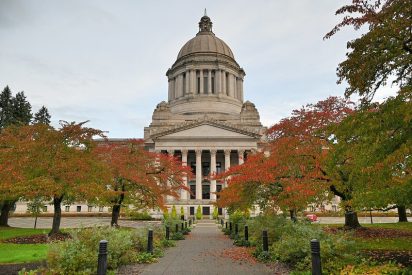
It’s no secret that climate change is already here and impacting the beautiful landscapes, waters, and communities of human and non-human species in Washington state. With extreme temperature shifts in both the summer and winter months, increased intensity and frequency of heatwaves, wildfires, and drought, there are clear signs that climate change is affecting the way we live our lives. The degree to which we may adapt to and be impacted by climate change varies depending on our existing relationship with social, political, and economic systems.
Read moreA Conversation About Veganism: How it Shapes our Food Systems, Fisheries, and Lives
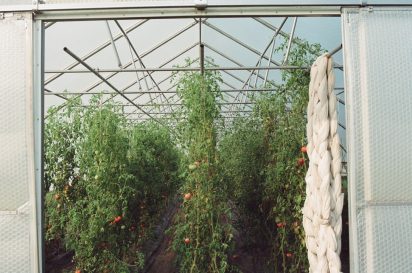
You might be surprised to see an article about veganism coming from a program with both a strong legacy of fisheries policy, and many students—including one of the authors—studying or working in fisheries across the U.S. We are motivated to write this article because we feel like it shouldn’t be surprising at all. While many people likely think of veganism as adhering to a moral doctrine with near-militant levels of strictness, following plant-based trends, or perhaps a facade of moral superiority, we discovered that we had a much different definition.
Read moreHome TURF: Successful Co-Management of Chilean Fisheries by Chilean Fishers
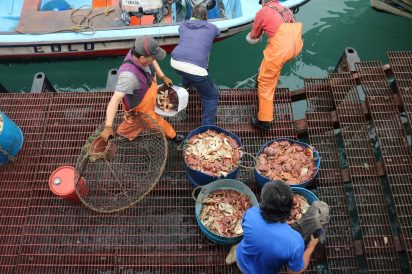
Situated along the western coast of South America, Chile has an astonishing amount of natural resources, from the otherworldly landscape of the Atacama Desert in the north to the towering mountains of Patagonia in the south, and nearly 4,000 miles of coastline in between. With so much ocean access, it’s no wonder that marine fisheries are one of Chile’s economic pillars, trailing behind the copper, lithium, and molybdenum mining industry.
Read moreRestorative Aquaculture: Risk and Reward
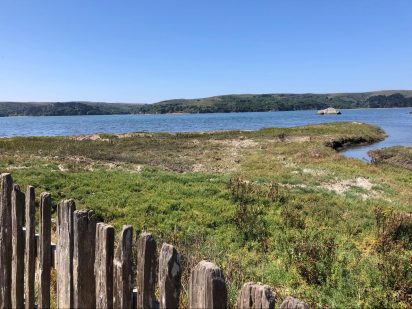
Many environmentalists dream of a world where producing food in a way that benefits the environment is possible. With commercial agriculture pushing pesticides, fertilizers, methane, and other pollutants into the environment, food production generates an oversized share of pollution. Looking at the food production problem through this lens, concepts such as restorative aquaculture appear to be the epitome of feeding two birds with one scone—producing food while improving the environment.
Read moreSouth Asian River Politics
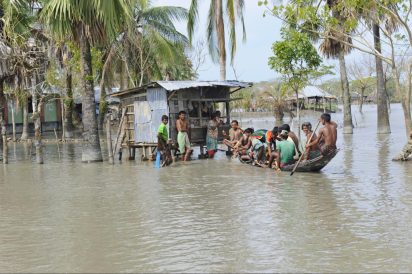
In the summer of 2022, over 84% of Sylhet, Bangladesh was flooded. Millions of people were affected, with almost 500,000 being evacuated to shelters. Watching the footage with my family in Florida, I commented, “Climate change will be the end of Bangladesh.” Someone responded, “This isn’t the climate. This is India.” I was shocked, unsure if their reaction was climate denialism, or if there was a sinister, geopolitical truth behind why hundreds of villages in my maternal district were being inundated.
Read moreOffshore Timber: The Reindustrialization of Pacific Coast Logging Communities
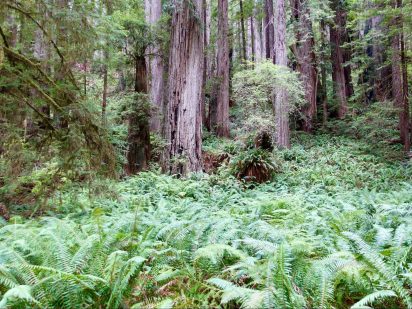
Along the Pacific Coast, small towns dot the rugged coastline from San Francisco to Seattle. Built on fishing and logging, these extractive industries were foundational to the economy and construction of the Pacific Northwest. As traditional industries contracted due to over-exploitation of resources, mechanization of labor, and changes in demand, the west coast became more urban. The US west coast is now defined by the tremendous growth of its tech sector titans: Microsoft, Apple, Amazon, and Google.
Read morePlenty of Fish in the Sea: Three Fisheries You Didn’t Know You Needed to Know About
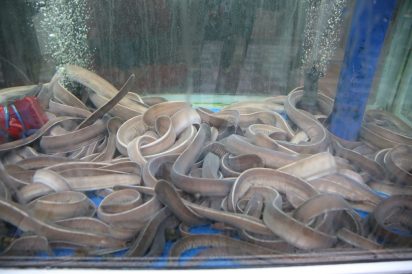
If you love fisheries as much as I do, perhaps this situation sounds familiar. I am at another social function in the Pacific Northwest. There are snacks, laughter, beverages, and lots of conversation. Like most of the social functions I have been attending recently, this one revolves around fish. Maybe it was that fishery speaker series reception I go to every week?
Read moreHolding fast: How coalition building supports mobilization for kelp forest conservation in Puget Sound
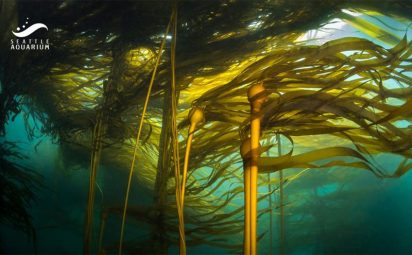
As communities grapple with the concurrent and codependent effects of climate change and the degradation of marine ecosystems worldwide, the need for ecological conservation, restoration, and management has risen dramatically. In the last decade alone, nearshore ecosystems along the West Coast of North America have been hit hard by thermal anomalies, overfishing, and disease, among other local and global stressors. These disturbances are anything but benign, having led to substantial losses of numerous species critical to regional ecologies and economies.
Read moreWandering Around Whidbey: The Best Places to Explore on Whidbey Island this Winter

As the excitement and relaxation of the holiday break comes to an end, and students are drawn back to weekly to-do lists, assignments, and research, I’m found searching for a new weekend adventure to break up the quarter’s hustle and bustle. I find myself eagerly brainstorming this adventure, one that is preferably outdoors, gets me moving to feel better about the holiday sweets consumed, and is a much-needed break within a busy winter quarter.
Read moreA Journey to Hawaii’s Underwater Realm with Local Fish
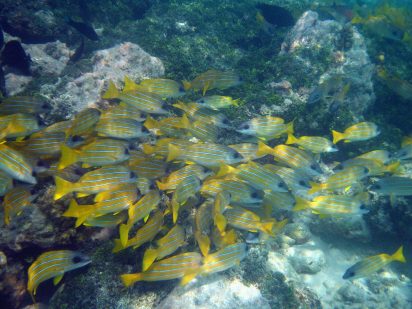
As January’s cold winter winds sweep through Seattle, I invite you to read on for a virtual escape to Hawaii’s vibrant underwater realm. In this exploration, imagine the deep, rich blue waters, where the lively frolic of tropical fish dances beneath the shimmering surface. So, relinquish the chill of winter for a moment and wrap yourself in the comfort of words.
Read moreRooted in Nature: The Lasting Impact of 1960’s American Folk Music
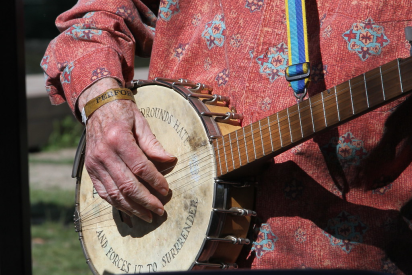
In the class SMEA 500: Marine and Environmental Affairs Theory and Practice, I read a section of Katherine McKittrick’s book Dear Science and Other Stories, where she reflects: “I sometimes show texts, such as images of music (scores, album cover art, musicians), because I adore music and it structures my life and work, but these ideas are not represented satisfactorily in my research”.
Read moreThe power of nature in fostering connectedness and bolstering mental health
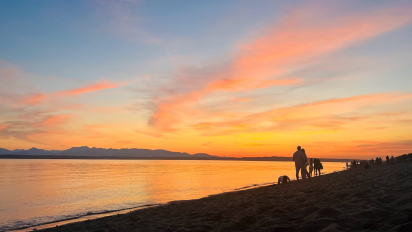
Please note: We updated this article since its original publication to include some practical ways that we as citizens can contribute to effective climate change mitigation.
I came into the School of Marine and Environmental Affairs (SMEA) master’s program at UW with the clear personal goal of becoming more informed about the current events and observable trends of climate change. What I did not anticipate was the intense level of anxiety I would experience after just a brief but diligent dive into the current state of affairs during the first few weeks of my first quarter.
Little Boat, Big Ocean
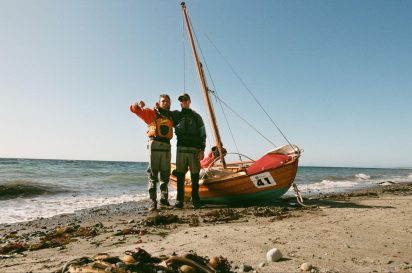
This project is deeply personal; a collection of the values, feelings, and actions that make me. It is my hope that readers might enjoy the story and feel something for the spaces that represent them as individuals. A deep and heartfelt thank you goes out to the many people, places, and inspirations that helped me along the way.
The ocean has always been there for me.
Fisheries Observer in the Bering Sea: A Day in the Life

The bunkroom door swings open and light from the ship’s passageway pulls me from a thick fog of sleep. Soon, the silhouette of a deckhand appears with a coarse whisper: “hey observer, we’re going to haul in 15 minutes.” Wearily, I swing my legs over the top bunk, trying not to step on my slumbering bunkmate below, but the swells are big today and I lose my footing.
Read moreThere’s Seaweed in Your Milk! How Algae Drives Our Food System

In elementary school, I remember being interrupted one day by a friend shouting “there’s seaweed in your milk!” as I happily sipped on my chocolatey drink. At the time, I dismissed the idea, thinking that my friend had been tricked into believing some silly story. There couldn’t possibly be seaweed in my chocolate milk–the idea was absurd! Decades later, I realized that not only was my childhood friend right about seaweed products in chocolate milk, but that the role of seaweed in our food system goes far beyond just this one tasty drink.
Read moreThe Lost Fish: Indigenous Traditional Ecological Knowledge and Translocation for the Ancient Pacific Lamprey

History: The “Trash Fish” of the Columbia
What does environmental justice look like for the “lost fish” that do not make it over Bonneville Dam each year? It is common to track annual spring and summer chinook salmon passage over Bonneville, but it is rather uncommon to consider other anadromous fish species like the native Pacific lamprey that are challenged by the same structures.
Spotlighting Diversity Forum: A Space to Cultivate Community within SMEA

Anyone who has been a part of the School of Marine and Environmental Affairs (SMEA) can tell you that interdisciplinary methods and community collaboration are key components of the department’s curriculum and research. SMEA is also committed to addressing climate and environmental issues through diverse approaches that aim to promote equity, justice, and inclusion. Whether faculty are designing new research projects or developing syllabi, it is clear this department is committed to producing practical and inclusive knowledge.
Read more